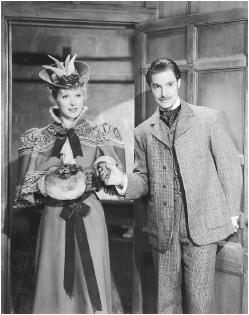Robert Donat - Actors and Actresses
Nationality: British. Born: Withington, near Manchester, 18 March 1905. Family: Married 1) the dancer Ella Annesey Voysey, 1930 (divorced 1948), three children; 2) the actress Renée Asherson. Career: Left school at 14; toured with elocution teacher James Barnard giving Bible readings and Shakespearian recitals; 1921—joined Henry Baynton touring company as actor, stage manager,

Films as Actor:
- 1933
-
Men of Tomorrow (Sagan) (as Julian Angell); That Night in London ( Overnight ) (Lee) (as Dick Warren); Cash ( For Love or Money ) (Zoltan Korda) (as Paul Martin); The Private Life of Henry VIII (Alexander Korda) (as Thomas Culpepper)
- 1934
-
The Count of Monte Cristo (Lee) (as Edmond Dantes)
- 1935
-
The 39 Steps (Hitchcock) (as Richard Hannay)
- 1936
-
The Ghost Goes West (Clair) (as Murdoch Glourie/Donald Glourie)
- 1937
-
Knight without Armour (Feyder) (as A. J. Fothergill)
- 1938
-
The Citadel (Vidor) (as Dr. Andrew Manson)
- 1939
-
Goodbye, Mr. Chips (Wood) (as Charles Edward Chipping)
- 1942
-
Young Mr. Pitt (Reed) (as William Pitt)
- 1943
-
The Adventures of Tartu ( Tartu ) (Bucquet) (as Terrance Stevenson)
- 1946
-
Perfect Strangers ( Vacation from Marriage ) (Korda) (as Robert Wilson)
- 1947
-
Captain Boycott (Launder) (as Charles Stewart Parnell); The British—Are They Artistic? ( This Modern Age, Number Sixteen ) (pr: Nolbandov—short) (as interviewee)
- 1948
-
The Winslow Boy (Asquith) (as Sir Robert Morton)
- 1951
-
The Magic Box (Boulton) (as William Friese-Greene)
- 1954
-
Lease of Life (Frend) (as Rev. William Thorne)
- 1956
-
The Stained Glass at Fairford (Wright—doc) (as narrator)
- 1958
-
The Inn of the Sixth Happiness (Robson) (as Chinese mandarin)
Film as Producer and Director:
- 1949
-
The Cure for Love (+ co-sc, ro as Sgt Jack Hardacre)
Publications
On DONAT: books—
Richards, Jeffrey, The Age of the Dream Palace: Cinema and Society 1930–1939 , London, 1984.
Barrow, Kenneth, Mr. Chips: The Life of Robert Donat , London, 1985.
On DONAT: article—
Bodeen, DeWitt, "Robert Donat," in Films in Review (New York), December 1981; additions to filmography in issue for March 1982.
* * *
Robert Donat was one of the martyrs of the acting profession, a potentially great actor hampered by ill-health, which he resolutely strove to overcome throughout his career. Though favored with romantic, even dashing good looks and a richly beautiful voice, he had initially to cope in childhood with a serious stutter. Training in elocution gradually controlled this nervous impediment, with the result that, once established as an actor, he became famous alike for his voice and his sensitivity of expression. However, he also suffered from chronic asthma throughout his life.
Before his London debut in 1930, he had had virtually a decade of experience as a youthful actor in repertory and touring companies, performing in a wide range of plays, including those of Shakespeare. He developed a particular gift for reciting verse, which he was later to consolidate through his recordings. After rejecting an offer from Irving Thalberg—he had a particular dread of going to Hollywood—he accepted a contract with Alexander Korda and, like Merle Oberon as Anne Boleyn, achieved stardom in The Private Life of Henry VIII , in which he played her ill-fated lover. After that he played Edmond Dantes successfully in an American version of The Count of Monte Cristo , but this single experience only confirmed him in his view that he must remain in England, where until his death in 1958 he was always the much admired star of stage and screen.
He appeared in one of Hitchcock's best, and most romantic, British films, The 39 Steps , and brought charm and distinction to René Clair's English film made for Korda, The Ghost Goes West . After working with Marlene Dietrich in Knight without Armour and playing the doctor in the film version of A. J. Cronin's novel The Citadel , he won an Academy Award for his remarkable achievement spanning youth to extreme old age as the beloved schoolmaster in Goodbye , Mr. Chips . Later roles included the title role in The Young Mr. Pitt , the dedicated lawyer in the film of Rattigan's play The Winslow Boy , and the British film pioneer William Friese-Greene in The Magic Box .
Donat's health finally gave way during the filming of The Inn of the Sixth Happiness , which he only managed to complete with the help of oxygen. The last line he spoke in the film became famous for its tragic appositeness: "We shall not see each other again, I think. Farewell." He died before the picture was released.
—Roger Manvell
Comment about this article, ask questions, or add new information about this topic: